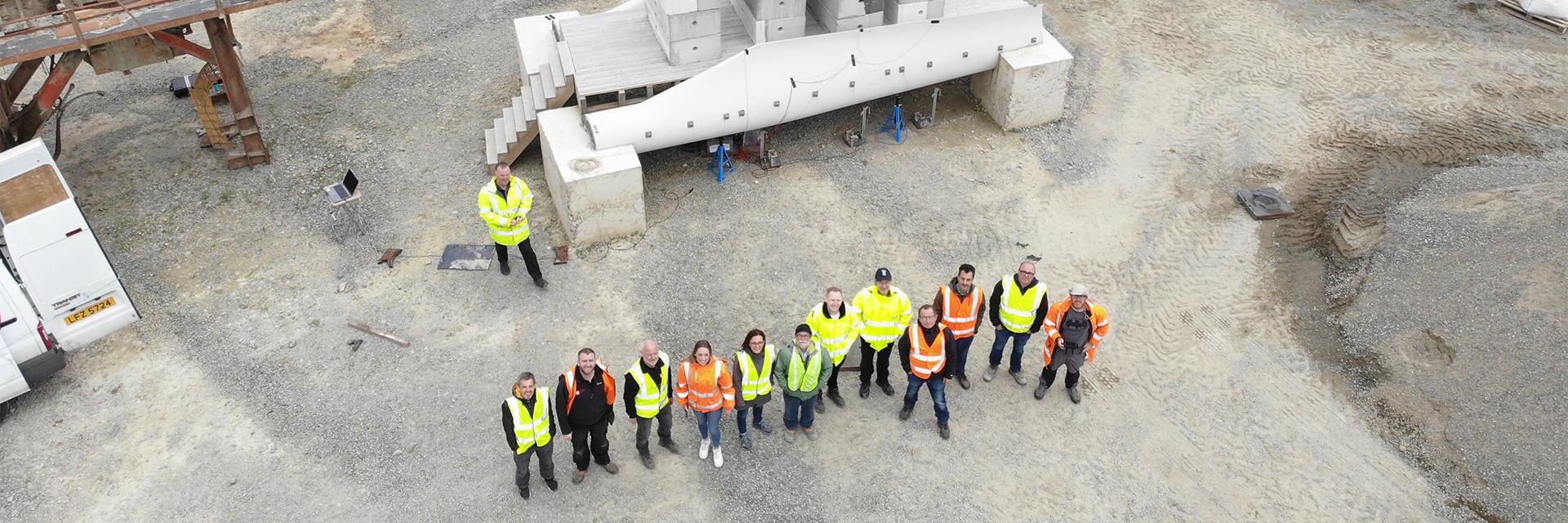Humans have looked to the stars for guidance for thousands of years — and when it comes to questions of sustainability, the practice is no different.
The best way to deal with climate change is a heated topic of debate here on Earth — laws are created, nonprofits are formed, investments are made, and lobbyists have their say — but the concept also transcends terrestrial boundaries. As we navigate the complexities of shifting to a more sustainable world, it turns out there is a lot we can learn from and apply to our ventures in outer space.
Researchers in the Ivan Allen College think big to explore questions of sustainability on Earth, in outer space, and on a cosmic scale.
The Importance of Megaregions
Brian Woodall, a professor at the Sam Nunn School of International Affairs, uses satellite data to rethink how we understand and address sustainability in our cities. He directs the Sustainable Megaregion Research Project with Mariel Borowitz, an associate professor in the Nunn School, and experts across Georgia Tech.
The group uses data generated by NASA and the National Oceanic and Atmospheric Administration to draw definitive boundaries around Earth's megaregions — large, densely-populated areas such as the Boston-Washington corridor, Greater Tokyo, and the Amsterdam-Brussels-Antwerp triangle. Then, the researchers combine light emissions and other datasets to analyze CO2 emissions, urban buildup, green space, population density, transportation infrastructure, and more.
"In this way, satellite data is critical in our efforts to fashion a comparative, time-sensitive, and data-driven system for delineating megaregion boundaries," Woodall said. "Then, we can assess their effectiveness in addressing sustainable development challenges."
According to the project website, three-quarters of America's population and employment growth will occur in just eight to ten megaregions by 2050. To ensure sustainability in the face of climate threats, we must build resilience and protect critical infrastructure in these areas, the group says.
Political Parallels
However, whether it’s in megaregions or across international borders, it's no secret that humans don't always get along. Lincoln Hines, an assistant professor in the Nunn School, studies the politics of outer space with a focus on the Chinese space program. He says that comparing sustainability challenges on Earth to those in space — such as the 100 million+ pieces of space junk littering Earth's orbit — underscores the political nature of these problems and their international nature.
"The politics of space sustainability largely reflect the politics of sustainability on Earth, as humans continue to confront difficult collective action problems in both domains," Hines explains. "Neither global warming nor space debris care for the human constructs of sovereignty and national borders."
Tony Harding, an economist and assistant professor in the School of Public Policy, echoes this sentiment.
"We have this public good, which is space and near Earth's orbit, where we put satellites. And because no one is in control and has property rights in that area, we end up with an overuse and a lot of space junk," he says. "This parallels the Tragedy of the Commons problem we see on Earth — we have issues with climate change because we're all contributing a small amount to the problem and not facing the full cost of it."
Harding studies the costs and benefits of solar geoengineering, which uses atmospheric particles to reflect the sun's radiation to slow global warming. Whether it's adding sulfate to the skies or cleaning up Earth's orbit, an intergenerational perspective is helpful, he says.
"Should we develop geoengineering technology so the next generation has the choice to use it? Should we leave them with millions of pieces of space debris just because we don't want to clean it ourselves?"
Second Time's a Charm(?)
Despite the growing space debris problem, Borowitz emphasizes that we can proactively address the challenges of space sustainability and learn from our mistakes on Earth.
"It's still early on in space, so we have the opportunity to think about sustainability from the beginning and address these issues before the debris is completely out of control," she says. "We are on an unsustainable path at the moment, but we can adjust before anything goes wrong."
She adds that as interest and activity on the moon ramp up, the same questions apply. Because the moon doesn't have wind or weather like we do on Earth, when something changes its surface it can stay like that for thousands of years.
"So it's really another place where you've got to do it right the first time," Borowitz says. "This is the test, right? The test for humanity — can we do it differently?"
Sustainability on a Cosmic Scale
Chris Michaels, a Marion L. Brittain Postdoctoral Scholar in the School of Literature, Media, and Communication, thinks about space from a symbolic perspective: What would happen if we scale up our consciousness to the level of the cosmos? Michaels teaches a course on modern terraforms and says contemplating the vast reaches of space can challenge us to think about sustainability in new ways.
"The idea of space serves as a new frontier to be explored and colonized. If humans can migrate to other planets and make them home, then sustainability on Earth may look quaint and outdated," he says. "Humans tend to experience time on an atomized scale around their individual lives and have trouble thinking as concretely about the long term. But imagine if humans had a life span of 500 years, or they thought and acted less as individuals and more as members of a human race that extends thousands or even millions of years into the future. Thinking and acting on this larger scale would better align us with the geological timescales of the Earth, where sustaining our lives goes hand in hand with sustaining the Earth."
The sprawling expanse of space is more than just an escape route from our troubled planet, and pondering it helps us shift our perspective from that of the starring role in our little galaxy to a bit character in a much larger play.
Traditional Inspiration, New Solutions
From satellite-driven research to geopolitical challenges and cosmic contemplation, humans continue to look to the stars for inspiration and information on keeping our planet and its orbit healthy.
When it comes to our mandate for more sustainable living, it's not just about protecting our home but how we fit into the wider universe. Becoming better caretakers of our planet connects us to our past and future, here on Earth and out among the stars.





